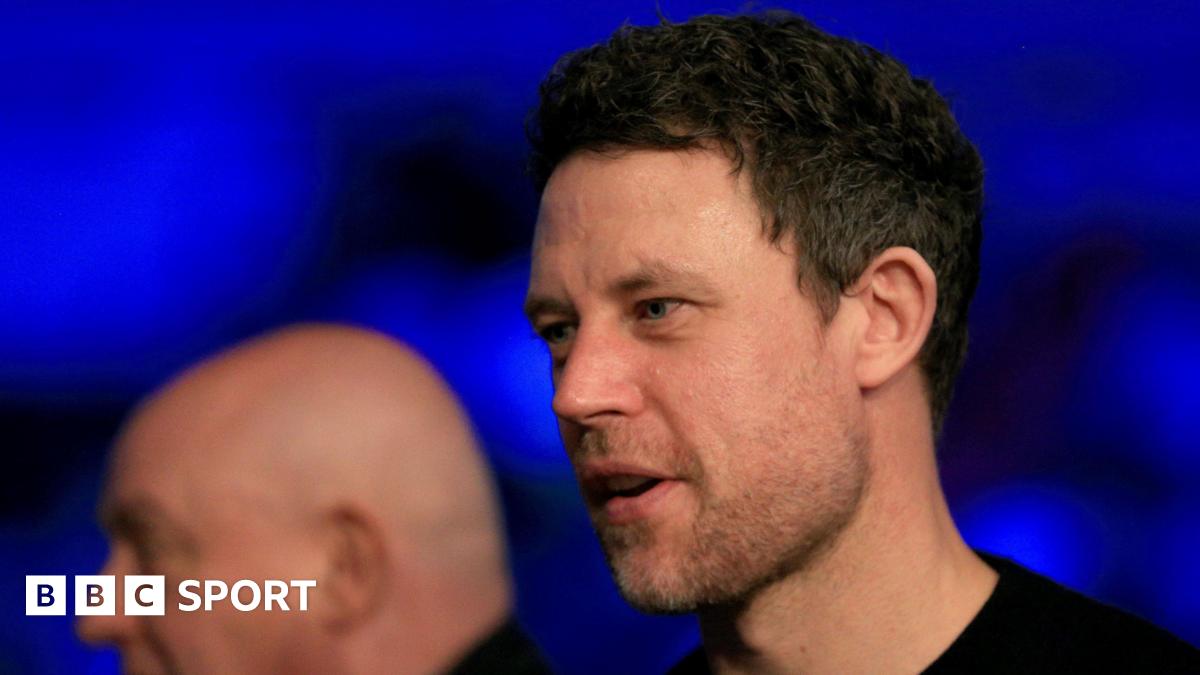ARTICLE AD BOX
The ongoing Women's Ashes in Australia was tipped to be the closest contest between the two sides for a decade.
The gap between the legendary Australians and an improving, laser-focused England was closing - or so the theory went.
The previous series in 2023 was drawn, both teams were eliminated early from the autumn's T20 World Cup and had a point to prove, and England had learned from past mistakes.
Fast forward to four games of one-sided cricket later and England have conceded the Ashes at the earliest possible opportunity - going down with a whimper.
After the first two one-day internationals, when England were bowled out for 204 and then failed to chase 181 to get themselves level, captain Heather Knight repeatedly said England were "so close" to Australia, and that they were "not far away" from catching up.
The message was similar after a 57-run defeat in Monday's first T20, when Knight said "we felt like we were in the game" and "we can match them".
But, with Australia 8-0 up and showing no signs of taking their foot off the gas, England need to stop kidding themselves - and us.
Frankly, they are nowhere near.
England can continue to say they are closing the gap, but the results and performances do not reflect it.
Of course, there is no shame to losing to Australia. Let's get that straight.
They hold the 50-over world title, before last year they had won six out of the last seven T20 World Cups, and they lead the way in every single aspect of the game having built enviable strength in depth through their professional domestic set-up.
They are ruthless, but England are ranked second in the world and they should aspire to be knocking them off the top spot - or at least running them close and giving them a few bloody noses.
Yet, England are the ones bloodied and bruised.
The frustration from this series has come from an inability to do the basics right in the field, repeated batting mistakes against spin, and the fact that since 2023, Australia have surged ahead in every aspect of the game while England appear to have stood still.
The second ODI will go down as the defining match of this series because, essentially, Australia got away with one.
Instead of England gaining momentum and levelling the series, it simply gave Australia a reminder of their own fallibility and since then they have not given an inch.
They responded by posting 308 in the next ODI - when, in fairness, England did little wrong in the field - and then 198 at the first time of asking in the first T20 here in Sydney.
Beth Mooney smacked a match-winning 75 from 51 balls having been dropped on 16 and 23, after debutant Georgia Voll was put down on 13 on her way to an aggressive 11-ball 21.
If we are looking at the gulf between the sides, the biggest area where England need to improve is in the field - and that is where Australia excel.
During Australia's innings, England let the ball slip through their hands and legs. There were singles stolen from overthrows. They failed to reach balls on the boundary, where in comparison, Australia's fielders were reaching them with ease.
The hosts, whether marshalled by Alyssa Healy or stand-in skipper Tahlia McGrath, charge around the field between the overs. They don't give the opposition time to breathe, let alone think. They smother you.
Such is their supreme athleticism and aura, the crowd is stunned into silence when a rare slip happens.
And even when they are up against it - as when Sophia Dunkley smashed a 24-ball fifty in England's chase - their body language does not change.
Mooney herself summed it up perfectly in her post-match interview.
"It's an attitude thing," she said. "We throw our bodies around and make a conscious effort to go for everything.
"We want to keep pushing the boundaries of what we can achieve."
In contrast, England are not addressing their problems with the same level of discipline.
In 2023, they lost 39 wickets to Australia's spinners at an average of 22.5, and towards the end of that summer they surprisingly lost a T20 series against Sri Lanka when spin dominated once more.
Head coach Jon Lewis acknowledged it as a weakness, and said he would be taking his players to spin camps to address the problems. Yet so far in this series they have already lost 22 wickets to spin, averaging just 11.63 at a strike-rate of 71.
While the team is struggling on the pitch, they are not winning many friends off it.
After they crashed out of the T20 World Cup under a torrent of dropped catches and stooped shoulders, former England bowler Alex Hartley was one of a handful of pundits who questioned the team's fitness and suggested this was an area of improvement.
Since Hartley's comments, some members of the England team have not engaged with her while on media duties for BBC Test Match Special and Channel 7 in Australia.
It came to a head in the pre-match build up in Sydney when spinner Sophie Ecclestone - a former team-mate of Hartley for England and Lancashire - refused to do an interview with Hartley.
"I've been hung out to dry," Hartley told the BBC Test Match Special podcast.
"The reason I said England aren't as fit as Australia is because I want them to compete, I want them to be better and I want them to win. But I've been given the cold shoulder ever since - not by everyone, but some individuals and coaches.
"Clearly I have upset them. They think I am wrong, which is fine - I'm entitled to my opinions and they are entitled to theirs."
What England must accept is that until they close the gap on Australia, questions will continue to be asked of all aspects of their game.
For Australia, the juggernaut thunders on.

 6 hours ago
2
6 hours ago
2








 English (US) ·
English (US) ·